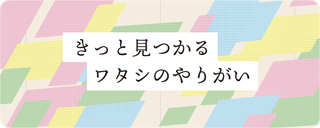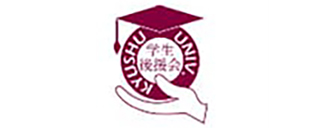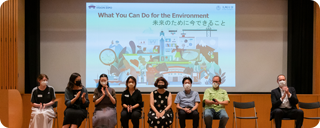About 九州大学について
平成28年度 秋季入学式・外国人短期留学プログラム開講式(2016年10月3日)
- トップページ
- 九州大学について
- 総長室
- 歴代総長
- 歴代総長メッセージ(久保千春元総長)一覧
- 平成28年度 秋季入学式・外国人短期留学プログラム開講式(2016年10月3日)
総長式辞・挨拶等
Address by the President Fall 2016 opening ceremony
October 3rd, 2016
I am delighted to be here today at the Fall 2016 entrance ceremony to deliver this message and to welcome 429 new students. Among you, 27 are enrolled in the International Undergraduate Program, 331 in degree programs in our graduate schools, and 71 in the JTW and JLCC programs. We are very pleased that you all are with us today.
We are also pleased to have several honored guests with us: Mr. Jian Ding, the Consulate-General of the People‘s Republic of China in Fukuoka, who will deliver a congratulatory address, Ms. Nguyen Phuong Hong from the Consulate-General of the Socialist Republic of Viet Nam in Fukuoka, Mr. David Tursz from the French-Japanese Institute of Kyushu, and Ms. Li Hui San from the Taipei Economic and Cultural Office in Fukuoka. On behalf of Kyushu University, I would like to express my deepest gratitude for your kind attendance at today’s ceremony.
To our new students, I hope you are excited about attending Kyushu University. Let me tell you a little about it.
In 1903, Fukuoka Medical College was established as an affiliate of Kyoto Imperial University. Eight years later, in 1911, the College of Engineering was established, and with these, Kyushu Imperial University was founded. This was the start of Kyushu University. Since then, we have gone through several organizational changes, such as setting up new schools and faculties, integrating with Kyushu Institute of Design, and being reorganized as an independent foundation.
At present, Kyushu University consists of 11 undergraduate schools, the 21st Century Program, 18 graduate schools, 4 professional graduate schools, the Faculty of Arts and Science, and 5 research institutes, as well as the University Hospital—which is one of the most advanced medical institutions in Japan—, and the University Library—which prides itself on a collection of some 4.2 million volumes. Kyushu University has grown into one of the leading universities in Japan.
Kyushu University serves 18,659 students, including 2,089 international students, and 8,024 faculty and non-faculty staff members, giving a total of 26,683 people who are studying and working here.
Concerning the university’s physical presence, it has five campus sites, the Ito, Hakozaki, Hospital, Chikushi, and Ohashi campuses. Including the University Farm and Research Forests, Kyushu University’s total land area is about 76km2, making it the third largest university in Japan.
The Ito Campus is on hilly land surrounded by an abundance of nature and extends 3km east to west and 2.5km north to south. Its location is also a historical place, with human activity going back nearly 1800 years. To prepare the ground for this campus, we gave due consideration to the natural environment in an effort to maintain the biological diversity, while also endeavoring to the greatest possible extent to preserve valuable cultural assets, such as ancient burial mounds.
Eleven years have passed since the Ito Campus was opened in the fall of 2005 and the Faculty of Engineering moved from the Hakozaki Campus. Since then, the campus development has been progressing steadily. We are now in the third and final stage of the overall relocation project.
This is an aerial photograph of the Ito Campus. The engineering buildings, the Faculty of Arts and Science, and the science buildings have all been completed. Two and a half years from now, in the 2018 academic year, the agricultural and humanities and social science programs are due to relocate here, completing the relocation project.
Many architecturally advanced buildings have been constructed on the Ito Campus over the last few years. These include the Shiiki Hall, the International Institute for Carbon-Neutral Energy Research, and the Ito Guest House.
New additions include the Center for the Innovation of Co-Evolutionary Social Systems and the second building of the International Institute for Carbon-Neutral Energy Research that were completed last year, while Dormitory 3 and Ito Harmony House where international and Japanese students live together were built two years ago.
The General Research Building for our science faculty was completed last October and a pre-opening ceremony for the new Central Library will take place this afternoon. In the near future, buildings will be constructed to house our humanities and social sciences faculties, along with the General Research Building for the Faculty of Agriculture.
Today, what I would most like to tell you is to be proactive in learning the Japanese language and to experience Japanese culture while you are studying here. Students enrolled in the JTW and JLCC programs will be attending lectures and practical classes as well as going on various field trips to study the Japanese language and culture. For students enrolled in the International Undergraduate and graduate programs, your time studying at Kyushu University will provide you with a tremendous opportunity to learn the Japanese language and culture in greater depth, in addition to engaging in study and research activities in your own majors.
Postgraduate students, please work hard in the study and research of your specialties and gain a wide range of knowledge. I hope you encounter the many wonderful aspects of the Japanese culture while interacting with Japanese students and local residents. My wish is for you to become future leaders of the global community, taking pride in what you have learned at Kyushu University.
Students in the JTW and JLCC programs, it would be gratifying if these short-term programs are just the beginning of your studies here at Kyushu University, and that you return here in the future as regular students after finishing your short-term programs.
I imagine you may have difficulties from time to time living in Japan, with its different language, culture, customs and economic conditions. To support you, Kyushu University has consultation centers on each campus, including the International Student Center, the International Student and Researcher Support Center, and the Counseling and Health Center, as well as your respective undergraduate or graduate office. Please feel free to visit them.
In closing, I would like to express my sincere wish that you have a truly meaningful experience and achieve your objectives while studying at Kyushu University.
Thank you for your kind attention.
Chiharu Kubo
President, Kyushu University
- トップページ
- 九州大学について
- 総長室
- 歴代総長
- 歴代総長メッセージ(久保千春元総長)一覧
- 平成28年度 秋季入学式・外国人短期留学プログラム開講式(2016年10月3日)









































